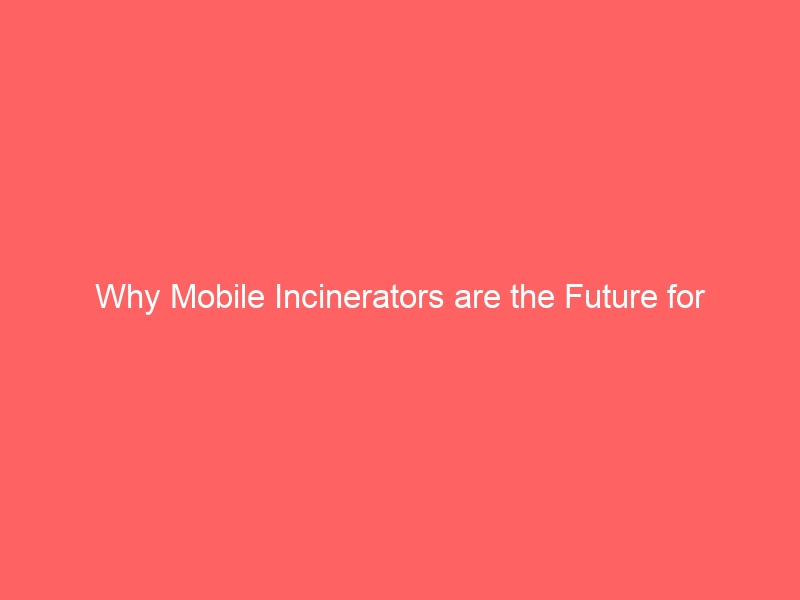Medical waste disposal is a critical issue that healthcare facilities must address in order to protect public health and the environment. In recent years, mobile incinerators have emerged as a innovative and efficient solution for safely disposing of medical waste. These portable units offer numerous benefits compared to traditional methods of disposal, making them the future of medical waste management.
Mobile incinerators are designed to be easily transported and deployed at the site of medical facilities, reducing the need for transporting waste to large centralized incineration facilities. This not only saves time and money, but also reduces the risk of spreading infectious diseases and prevents the release of harmful emissions during transportation. Furthermore, by disposing of waste on-site, the risk of contamination to surrounding areas is minimized.
One of the main advantages of mobile incinerators is their ability to safely and effectively destroy a wide range of medical waste, including infectious waste, sharps, pharmaceutical waste, and anatomical waste. These units are equipped with advanced technologies that ensure complete combustion of waste, effectively reducing the volume and eliminating any potential for hazardous materials to be improperly disposed.
Additionally, mobile incinerators are designed to meet strict environmental regulations and emit minimal pollutants, making them a sustainable and responsible option for medical waste disposal. They utilize advanced air pollution control systems to minimize emissions of particulate matter, dioxins, and other harmful substances, ensuring that the impact on air quality and public health is minimized.
In terms of operational flexibility, mobile incinerators provide healthcare facilities with the ability to manage their waste disposal needs efficiently. They can be easily mobilized to accommodate fluctuations in waste volumes, provide emergency response capabilities, and support remote or temporary healthcare facilities. This level of adaptability and versatility can greatly improve the overall waste management process for healthcare facilities.
Furthermore, the implementation of mobile incinerators can contribute to reducing the overall carbon footprint associated with medical waste disposal. By eliminating the need for long-distance transportation and centralizing incineration facilities, this technology can help to lower the environmental impact of waste management practices and support sustainability goals.
In conclusion, mobile incinerators offer numerous advantages in terms of efficiency, safety, and environmental responsibility, making them the future of medical waste disposal. As healthcare facilities continue to prioritize the proper management of medical waste, the adoption of mobile incinerators will play a key role in ensuring that waste is safely and effectively handled. With their advanced technology, operational flexibility, and environmental sustainability, mobile incinerators are poised to revolutionize the way medical waste is managed.
Why Mobile Incinerators are the Future for Medical Waste Disposal



